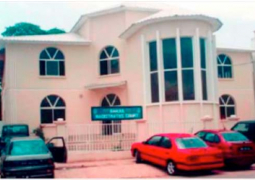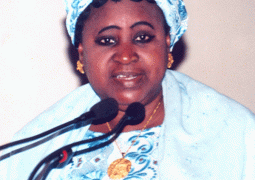Sheriffo Bojang deputy permanent secretary, Ministry of Agriculture, has said the Government of The Gambia is committed to the development of agricultural sector as evident in the endorsed Agriculture and Natural Resources Policy (ANR Policy) 2009-2015.
DPS Bojang was speaking at a one-day validation forum on the review of livestock/ meat and milk value chains held at the Paradise Suites Hotel in Kololi.
Participants are drawn from the major relevant stakeholders in livestock/ meat and milk value-chain including meat processors, and animal diary vendors, poultry farmers and others across the country.
According to him, the strategic objectives of the policy are the achievement of national food and nutrition security; a strengthened ANR sector through commercialization; strengthened public and private sectors to render the needed services and sustainable natural resource base.
He said the livestock sub-sector policy as contained in the ANR policy framework include the increasing livestock production and productivity to meet 75% of national demand for meat by the year 2015; ensuring the availability of affordable essential inputs; and ensuring that value chains are efficient, effective and linked directly to markets, thus increasing incomes and employment.
Dr Babagana Ahmadu, FAO representative in the country, stated that the livestock components of the Economic Community of the West African States Agricultural Programme (ECOWAP) is the strategic action plan for the development and transformation of the livestock sector in West Africa endorsed by Ministers of Members States (MS) in charge of livestock in March 2011.
He said ECOWAP is part of the Comprehensive Africa Agricultural Development Programme (CAADP) implementation and its livestock component has, as one of its main objectives, reducing dependency on imports of food of animal origin outside of the region. It is envisaged to achieve this objective through the development of livestock/meat and dairy value chains.
Taking into account FAO’s comparative advantage in providing technical support for the development of value chains and their policies, the Department of Agriculture and Rural Development of ECOWAS Commission requested assistance through a TCP to facilitate the process, he said.
According to him, FAO has approved the support to policy initiatives for the development of livestock meat and dairy value chains in the West Africa project.
The implementation of the project has started and one of the initial activities is to review the status of the two value chains in MS activity to be undertaken by a national consultant.
Dr Kebba Daffeh, Director of Animal Health and Production Services under the Department of Agriculture, stated that agriculture (including crops, livestock, fisheries and forestry), is one of the main drivers of economic growth in The Gambia.
The livestock sector in The Gambia contributes 29.6% to Agricultural GDP and 8.6% to National GDP.
The activities of the various livestock value chains - production (of cattle, sheep, goats, pigs and poultry), processing, marketing and services - provide livelihood opportunities to rural, peri-urban and urban inhabitants in The Gambia.
Dr Omar Touray, the lead consultant, said the objective of the consultancy is to review the livestock/meat and milk value chain and take stock of policies influencing them.



